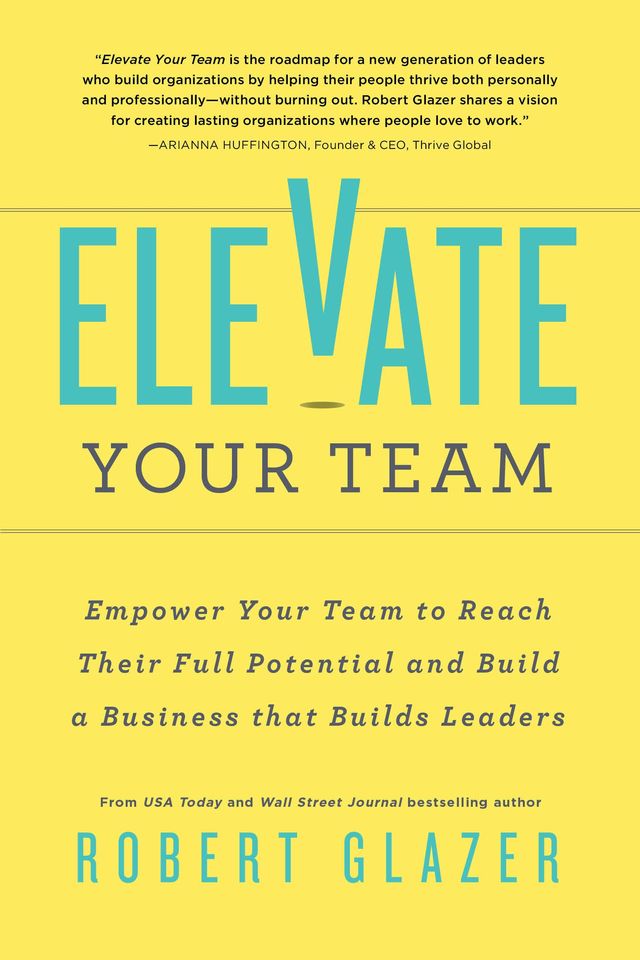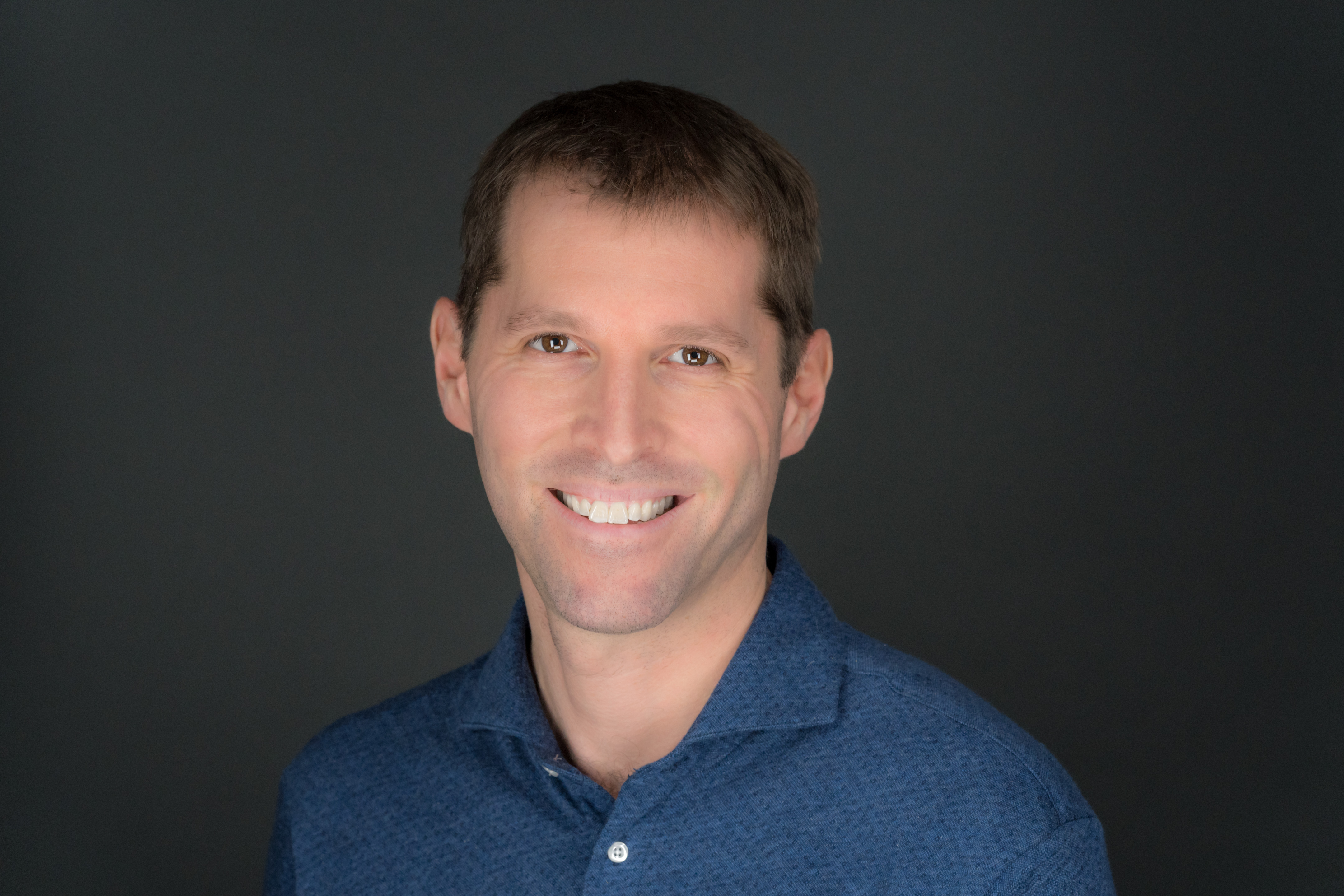The following is an excerpt from Elevate Your Team, a new book from award-winning CEO and #1 WSJ and USA Today bestselling author Robert Glazer.
In 2017, Marissa Mayer exited as CEO of Yahoo under significant pressure and scrutiny. Mayer’s tenure was marred by a string of failed acquisitions and an investigation into an unreported hack that led to the compromise of user data.
This was not the outcome most people expected when Mayer took the reins as CEO in 2012 to great fanfare after a storied thirteen-year career at Google. Mayer had started as Google’s twentieth employee, led development efforts of key company products such as Google Search and Google Maps, and exited the company as a fast-rising star.
During Mayer’s meteoric rise at Google, she was known for her extreme devotion to her work. In particular, she would reference pulling frequent all-nighters and had discussed a 130-hour workweek as a point of pride in several interviews.
Clearly Mayer was a success at Google with this approach, so what went wrong at Yahoo? In retrospect, there were some pretty noticeable clues that Mayer was building the type of culture that rewarded working hard rather than working smart.
In her first year at Yahoo, Mayer caused a bit of a controversy both inside and outside the company when she gave birth to her first child, a son, in her first few months on the job and returned to work just two weeks later. She even set up a nursery next to her office.
Two years later, the pattern repeated itself: Mayer gave birth to twin daughters and returned to work after only a few weeks of leave, with reporters sharing that Mayer was working from her hospital bed shortly after her girls were born. All the while, she continued to trumpet the virtues of her nonstop work ethos.
While Mayer’s dedication to her job might seem admirable, it’s illuminating to do some quick math on what a 130-hour workweek looks like in reality. In a five-day workweek, 130 hours would amount to 26 hours a day, so obviously Mayer was putting in serious time on her weekends as well. However, even if Mayer worked seven days per week, a 130-hour workweek would mean averaging over 18 hours daily. That leaves less than six hours per day for sleeping, eating, personal maintenance, and, well, life.
This behavior is neither healthy nor sustainable; maintaining this work schedule over the long term seems like a great recipe for extreme isolation, a nervous breakdown, or a heart attack—whichever comes first.
Furthermore, what kind of example does a leader with this type of punishing schedule set for their employees? A leader sets the tone for the entire company, and an executive’s work style or schedule is often seen as the benchmark.
Mayer’s extreme schedule epitomizes a workaholic style that was valorized during the past two decades. This was especially true in Silicon Valley and Wall Street. As prominent American executives boasted about their minimal sleeping habits and lack of vacations, their approach became a dominant professional standard of high-growth companies, based on the assumption that more working hours lead to better outcomes.
However, this playbook clearly didn’t work for Yahoo. Furthermore, it has become increasingly clear that this type of behavior and culture takes a personal and professional toll and causes organizations to burn through talent quickly.
Fortunately, many leaders today have learned that sacrificing health, sleep, and overall wellness doesn’t get the best outcomes in the long term. After the COVID-19 pandemic, many employees have made it clear that they are no longer interested in this sort of 24/7 work or hustle culture, and they won’t work for leaders or companies who embrace and celebrate it.
With respect to sleep, there’s also real science that pushing employees to the brink of sleep deprivation is simply bad business. A popular study on sleep and work found that a person who sleeps less than five hours a night is as cognitively impaired as someone who is legally drunk. Marissa Mayer wouldn’t hire someone who showed up to work drunk each day, but her leadership example effectively encouraged the same behavior.
In contrast to Mayer, however, it’s heartening to see more leaders today talk openly about protecting their sleep schedules. Two of the most well-known examples of this are Warren Buffett and Jeff Bezos, who both claim to sleep eight hours per night. These leaders certainly have enough work responsibilities to justify regular all-nighters as well, but they choose not to go that route because they have seen how it hampers their performance.
The data also supports these evolving viewpoints. Researchers are sounding alarm bells that we need more sleep. The National Sleep Foundation found that the average adult needs seven to nine hours of sleep per night to perform well cognitively.
Picture a person who barely gets five hours of sleep per night, mainlines sugar and caffeine for energy, never takes breaks to recharge throughout the day or the year, and neglects self-care activities such as meditation or exercise. Would you expect this person to show up to work well rested, with a clear head and a high level of energy? Would you expect them to be able to make sound decisions under pressure? And even if they could, is there any reason to believe they could sustain this long term without eventually hitting a wall?
The answer is clearly no. And this brings us to the crucial third element of capacity building: physical capacity.
Physical capacity relates to your health, well-being, and physical performance. In a professional setting, people with high physical capacity show up energized and focused each day, stay effective in stressful situations, and prioritize staying in balance. They have the energy and resilience needed to execute with efficiency and get more done in less time.
In turn, they can devote more time and energy to things that are important outside work, which keeps them healthier and more balanced overall. This is another instance where capacity building creates a virtuous cycle. Our brains and bodies depend on each other. Employees and leaders who prioritize their well-being and energy tend to perform better in all aspects of their life, especially at work.
Leaders who help their employees build their physical capacity will get better long-term performance and employee retention. The best leaders and companies today want their employees to prioritize their physical and mental health; they want employees who work smarter, not longer.
Although it may seem counterintuitive, these leaders are the ones who attract and retain top talent at their organizations. The result is a high-performing team that produces top results, doesn’t experience burnout, feels their workplace cares about them as people, and stays together for the long haul.
All of the above brings us back to the story of Marissa Mayer. Though Mayer’s extreme work habits frequently made headlines in her early days at Yahoo, there was not much else to celebrate during her tenure as CEO.
Mayer’s five-year tenure at the head of Yahoo was marked by challenges on all fronts. Yahoo experienced a collapse in employee morale and significant leadership turnover—over a third of Yahoo’s workforce left the company in 2015 and 2016, and a 2016 Glassdoor survey of the company found that only 34 percent of its remaining employees expected things to improve. That was before the mass layoffs started in 2016, which only made things worse.
Mayer had also embarked on an aggressive acquisition strategy, buying fifty-three companies during her tenure at a cost of over $2 billion. The majority of these acquisitions were written off as worthless. She even lost her bonus from her final two years of employment after an investigation revealed that senior Yahoo executives were aware of a major hack at the firm in 2014 but neglected to properly investigate and report it.
No one would argue that Mayer’s failure at Yahoo was due to a lack of effort. However, it’s not a stretch to wonder if things would have turned out differently had she focused more time on fewer strategic priorities, encouraged her team to trade one hundred–plus hour workweeks for better work-life integration, and didn’t mistake working hard for working smart in the few areas that mattered most to the company’s success.
This is the key lesson of physical capacity — you may believe you can sacrifice health, wellness, and sleep, especially in the professional world, but it is the leaders and teams that push themselves hard enough to diminish their well-being that often fail to achieve the ambitious goals they were working so hard to reach in the first place.



